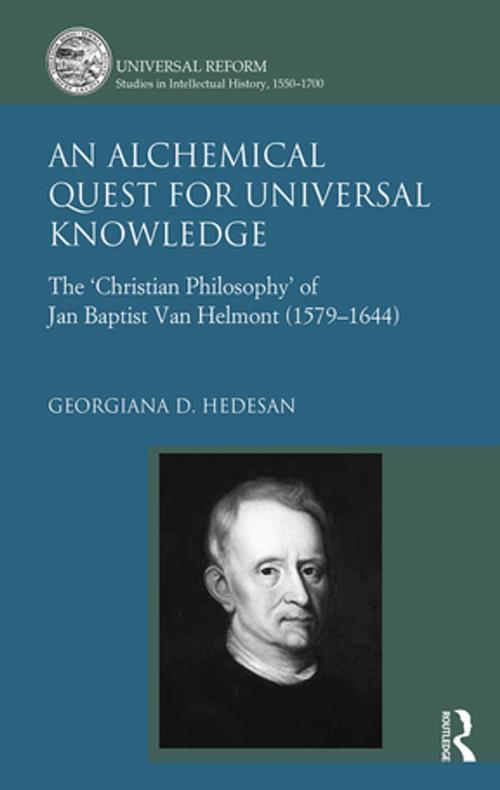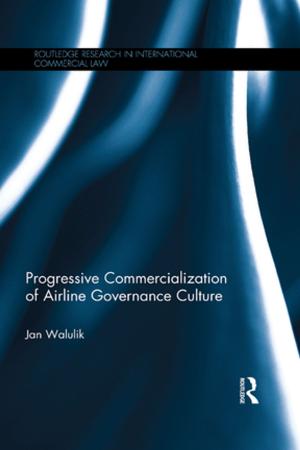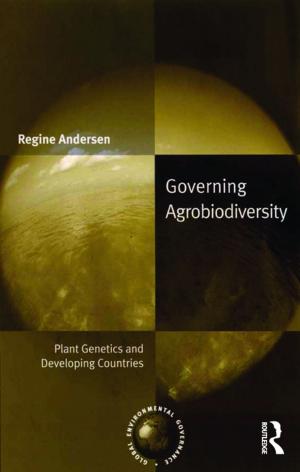An Alchemical Quest for Universal Knowledge
The ‘Christian Philosophy’ of Jan Baptist Van Helmont (1579-1644)
Nonfiction, History, Modern, 17th Century, Science & Nature, Science, Other Sciences| Author: | Georgiana D. Hedesan | ISBN: | 9781317182139 |
| Publisher: | Taylor and Francis | Publication: | April 20, 2016 |
| Imprint: | Routledge | Language: | English |
| Author: | Georgiana D. Hedesan |
| ISBN: | 9781317182139 |
| Publisher: | Taylor and Francis |
| Publication: | April 20, 2016 |
| Imprint: | Routledge |
| Language: | English |
History of science credits the Flemish physician, alchemist and philosopher Jan Baptist Van Helmont (1579-1644) for his contributions to the development of chemistry and medicine. Yet, as this book makes clear, focussing on Van Helmont's impact on modern science does not do justice to the complexity of his thought or to his influence on successive generations of intellectuals like Robert Boyle or Gottfried Leibniz.
Revealing Van Helmont as an original thinker who sought to produce a post-Scholastic synthesis of religion and natural philosophy, Georgiana Hedesan reconstructs his ambitious quest for universal knowledge as it emerges from the text of the Ortus medicinae (1648). Published after Van Helmont's death by his son, the work can best be understood as a compilation of finished and unfinished treatises, the historical product of a life unsettled by religious persecution and personal misfortune. The present book provides a coherent account of Van Helmont's philosophy by analysing its main tenets.
Divided into two parts, the study opens with a background to Van Helmont's concept of an alchemical Christian philosophy, demonstrating that his outlook was deeply grounded in the tradition of medical alchemy as reformed by Theophrastus von Hohenheim, called Paracelsus (1493-1541). It then reconstitutes Van Helmont's biography, while giving a historical dimension to his intellectual output. The second part reconstructs Van Helmont's Christian philosophy, investigating his views on God, nature and man, as well as his applied philosophy. Hedesan also provides an account of the development of Van Helmont's thought throughout his life. The conclusion sums up Van Helmont's intellectual achievement and highlights avenues of future research.
History of science credits the Flemish physician, alchemist and philosopher Jan Baptist Van Helmont (1579-1644) for his contributions to the development of chemistry and medicine. Yet, as this book makes clear, focussing on Van Helmont's impact on modern science does not do justice to the complexity of his thought or to his influence on successive generations of intellectuals like Robert Boyle or Gottfried Leibniz.
Revealing Van Helmont as an original thinker who sought to produce a post-Scholastic synthesis of religion and natural philosophy, Georgiana Hedesan reconstructs his ambitious quest for universal knowledge as it emerges from the text of the Ortus medicinae (1648). Published after Van Helmont's death by his son, the work can best be understood as a compilation of finished and unfinished treatises, the historical product of a life unsettled by religious persecution and personal misfortune. The present book provides a coherent account of Van Helmont's philosophy by analysing its main tenets.
Divided into two parts, the study opens with a background to Van Helmont's concept of an alchemical Christian philosophy, demonstrating that his outlook was deeply grounded in the tradition of medical alchemy as reformed by Theophrastus von Hohenheim, called Paracelsus (1493-1541). It then reconstitutes Van Helmont's biography, while giving a historical dimension to his intellectual output. The second part reconstructs Van Helmont's Christian philosophy, investigating his views on God, nature and man, as well as his applied philosophy. Hedesan also provides an account of the development of Van Helmont's thought throughout his life. The conclusion sums up Van Helmont's intellectual achievement and highlights avenues of future research.















